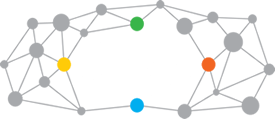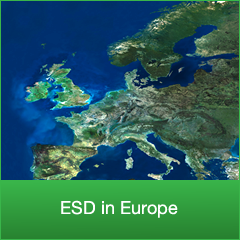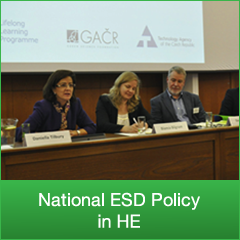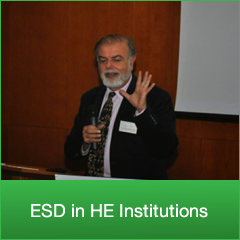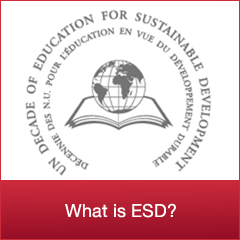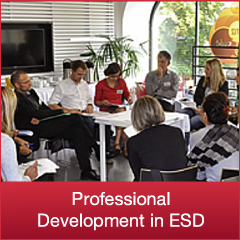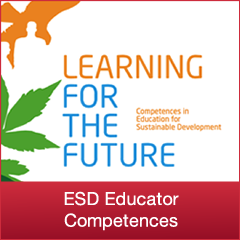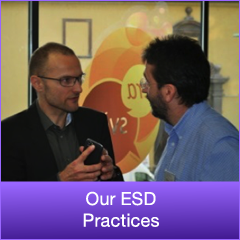What is ESD?
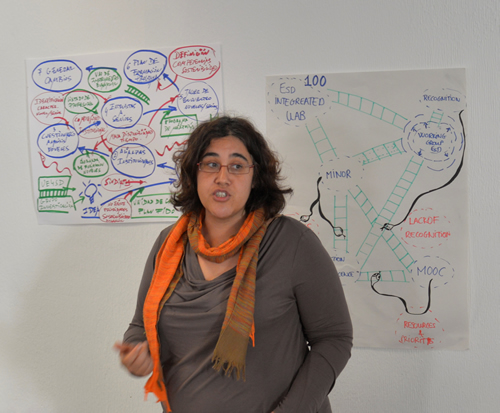
Education for Sustainable Development (ESD) is an approach to education that aims to reorient the learning experience and the capabilities people develop, so they can act in support of more sustainable ways of life.
The focus of ESD is in pedagogy, as it seeks not just to ‘teach about’ sustainable development and share expert knowledge in this area, but to equip people to respond to the complexities and uncertainties of the future. It prioritises the use of both established and less well known pedagogical approaches, such as:
- futures thinking
- learning to change
- systems thinking
- stakeholder engagement
- critically reflective thinking
- engaged and participatory learning
The practice of ESD has developed in all education sectors, with the aim not just of changing classroom practices and curriculum design, but also shifting the priorities of education systems at all levels. Effective ESD requires an ability to change learning dynamics and to influence education practices more widely, engaging teaching colleagues and shaping the priorities and plans of education providers.
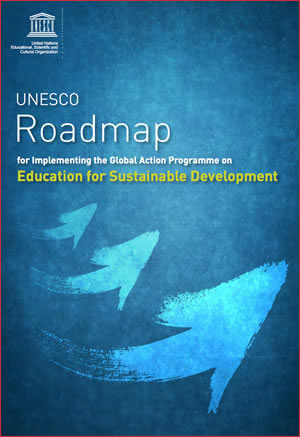
UN Global Action Programme on ESD (2014) – Priority Areas
The UE4SD project pledged its commitment to the priorities of the Global Action Programme that was launched in 2014 in Nagoya, Japan:
- Advancing policy;
- Integrating sustainability practices into education and training environments (whole-institution approaches);
- Increasing the capacity of educators and trainers;
- Empowering and mobilizing youth;
- Encouraging local communities and municipal authorities to develop community-based ESD practices.
ESD connects with theories and approaches in transformative learning, critical pedagogy, global education, active citizenship, environmental education, social learning and ‘whole person’ education. Its key principles and priorities for learning were set out in the international reports and frameworks used to guide the UN Decade of Education for Sustainable Development (2005-14) and to inform the UN Global Action Programme on ESD from 2015.
The final report of the UN Decade of Education for Sustainable Development (2005-14) underlines the role of the HE sector in showing leadership on ESD. It points to the importance of addressing professional development, to build capacity for integrating ESD into education.
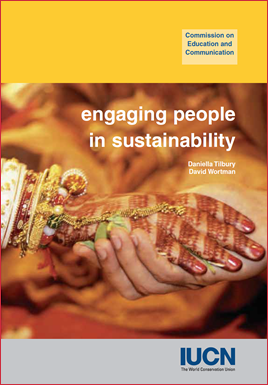
“These themes are recognised throughout the literature as key elements of education for sustainability practice:
- imagining a better future
- critical thinking and reflection
- participation in decision-making
- partnerships
- systemic thinking”
IUCN - Engaging People in Sustainability (Tilbury & Wortman, 2004)
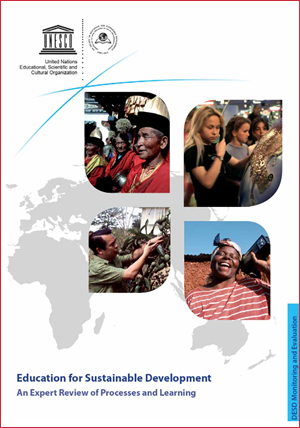
ESD learning also refers to:
- learning to ask critical questions
- learning to clarify one’s own values
- learning to envision more positive and sustainable futures
- learning to think systemically
- learning to respond through applied learning
- learning to explore the dialectic between tradition and innovation"
UNESCO - ESD: An Expert Review of Processes and Learning (Tilbury, 2011)
